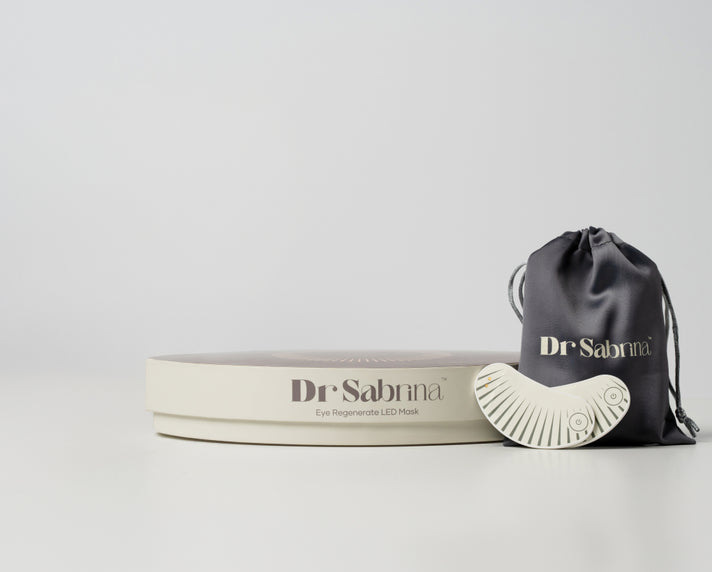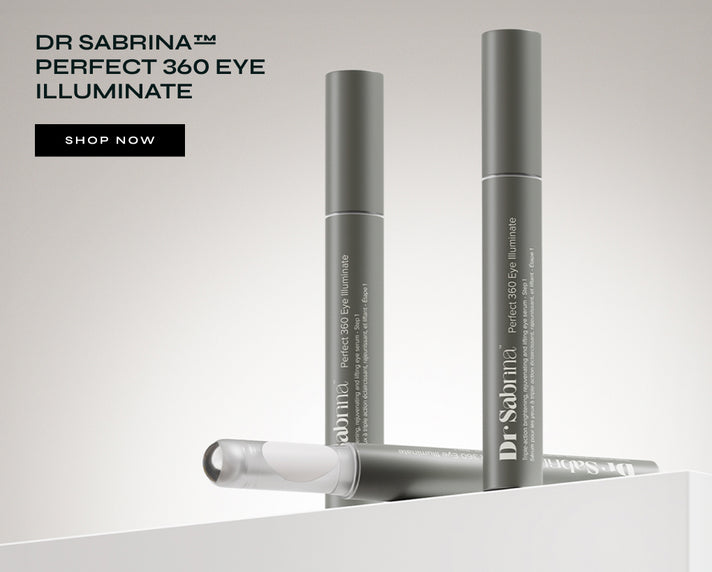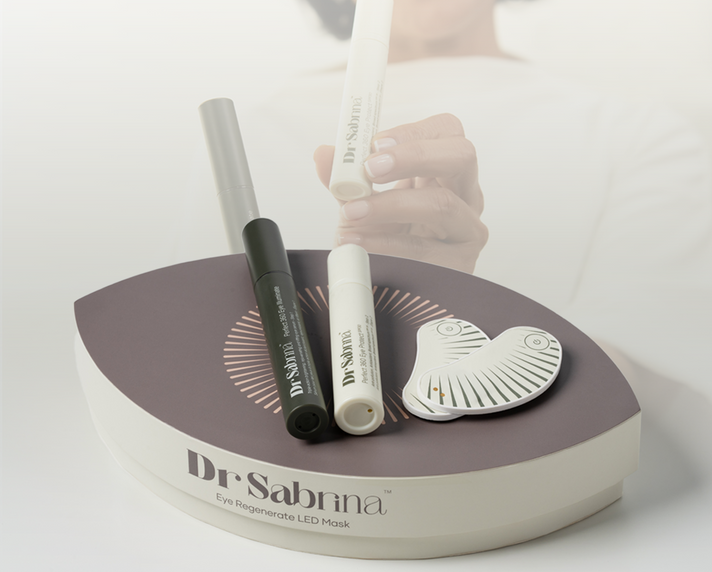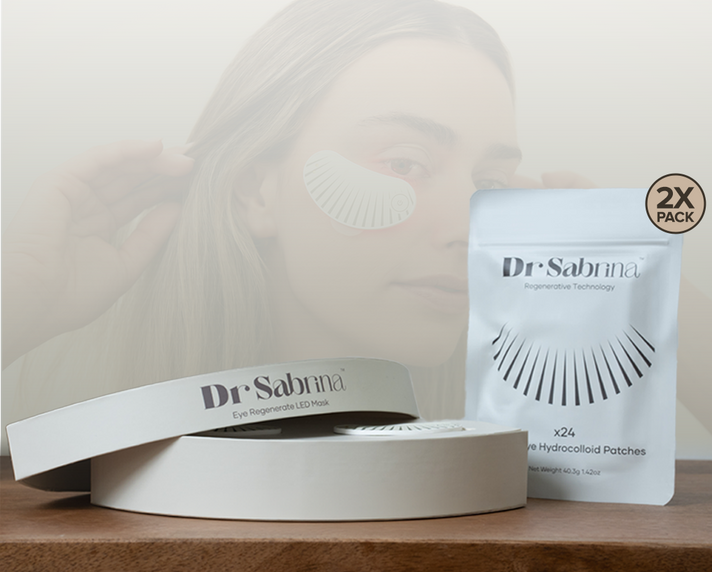LED Eye Patches
Can Cataracts Be Reversed?

Cataracts are the most common form of eye disorder in the elderly and occur when the eye's natural lens becomes cloudy. This clouding obscures the vision, blurs, and causes difficulties with glare and night vision.
As the global population ages, cataracts have become a leading cause of visual impairment worldwide. The most frequent question people ask is: Can cataracts be reversed without surgery?
This detailed blog explores the nature of cataracts, treatment modalities currently being explored, non-surgical interventions, & preventive measures.
Can You Reverse Cataracts Without Surgery?

Cataracts can't be cured without surgery. They occur when proteins build up in the eye’s lens, making it cloudy and blocking light, which leads to blurry or impaired vision. Surgery is the only effective treatment for curing cataracts. During the procedure, doctors remove the clouded lens and replace it with an artificial one.
However, there are ways to manage cataracts in the early stages to make daily life easier. These include:
- Wearing sunglasses that reduce glare.
- Using brighter lighting in your home.
- Trying magnifying lenses for reading or other close-up tasks.
- Updating your eyeglass or contact lens prescription.
These steps won't cure cataracts but can help improve your vision temporarily.
How to Reverse Cataracts? - Surgical Treatment
Eye health experts often recommend phacoemulsification, a modern cataract surgery technique that uses a special laser. The laser creates a precise circular opening in the lens capsule to help remove the cataract. It can also reshape the cornea if needed, reducing refractive errors and often eliminating the need for glasses after surgery.
Here’s how cataract surgery usually works:
- The surgeon uses numbing eye drops so you won’t feel pain. The procedure takes about 30–45 minutes.
- They use small tools to make a tiny incision in the eye and break up the cloudy lens.
- The surgeon opens the lens capsule, extracts it completely, and replaces it with an artificial lens.
- After surgery, you will spend some time in a recovery area. The medical team will check your eye to make sure everything looks fine. If there are no issues, you’ll be allowed to go home.
The eye doctor will give you drops to help your eye recover after surgery. You would also need to wear an eye shield or special glasses for a while to protect your eye during recovery.
How to Reduce the Risk of Developing Cataracts?
Regular eye exams are very important to monitor eye health and catch early signs. Maintaining a healthy lifestyle is equally important. Quit smoking, limit alcohol intake, and eat a healthy diet rich in fruits and vegetables that are high in antioxidants like vitamins A, C, and E, as well as lutein. It is also important to manage health conditions such as high blood pressure.
Protect your eyes from environmental factors. Wear sunglasses and a wide-brimmed hat to block harmful sunlight, as UV exposure can increase the risk of cataracts. Use protective glasses in environments where your eyes might be exposed to debris or foreign objects.
If you want to learn more about how UV exposure can harm your eyes, check out our previous blog, can your eyes get sunburned?
Include dark, leafy greens such as kale, spinach, and collard greens in your diet to improve eye health. If you’re over 60, ensure you have a dilated eye exam at least every two years to detect potential problems early.
Quick Recap: Can Cataracts Be Reversed?
Currently, there is no known natural remedy for cataracts. Cataract surgery is the only option for permanently removing them from your eyes and restoring your vision. It is usually safe and effective, and improvements are usually seen within a day or two.
Patients with cataracts who wish to know more about it should consult with an ophthalmologist and discuss treatment options available as well as the appropriate steps to take for general eye health maintenance.
In addition to vision issues like cataracts, ageing can also lead to visible signs around the eyes, such as puffiness and fine lines. For additional care, consider enhancing your skin's appearance around the eyes with LED under eye patches, which can help promote a more refreshed and youthful look.
Frequently Asked Questions
Do cataracts go away on their own?
No, cataracts do not go away by themselves. They will only worsen over time if not addressed. In some cases, untreated cataracts can even lead to blindness. It's important to have regular eye exams as part of your self-care to prevent cataracts from affecting your daily life.
How can you get rid of cataracts without surgery?
There is no way to cure or eliminate cataracts once they’ve developed, other than through cataract surgery. Neither medication nor special glasses can fully reverse the effects of cataracts.
Can I shrink cataracts naturally?
While maintaining a healthy diet and lifestyle may help slow down the development of cataracts, they won’t be able to stop or reverse them completely. Surgery, which involves replacing the clouded lens with an artificial one, is the most successful treatment.
Are cataracts painful?
Cataracts themselves don’t cause pain, but they can make your eyes more sensitive to light and rays. As cataracts get worse, you might also experience other symptoms like inflammation and headaches.
How long do cataract surgery results last?
Once cataract surgery is done and the natural lens is replaced with an artificial one, the chances of cataracts forming again are eliminated. The new lens is designed to last for the rest of your life, making cataract surgery very effective.
Is cataract surgery painful?
Cataract surgery isn’t usually painful because the eye is numbed with a local anaesthetic during the procedure.


















